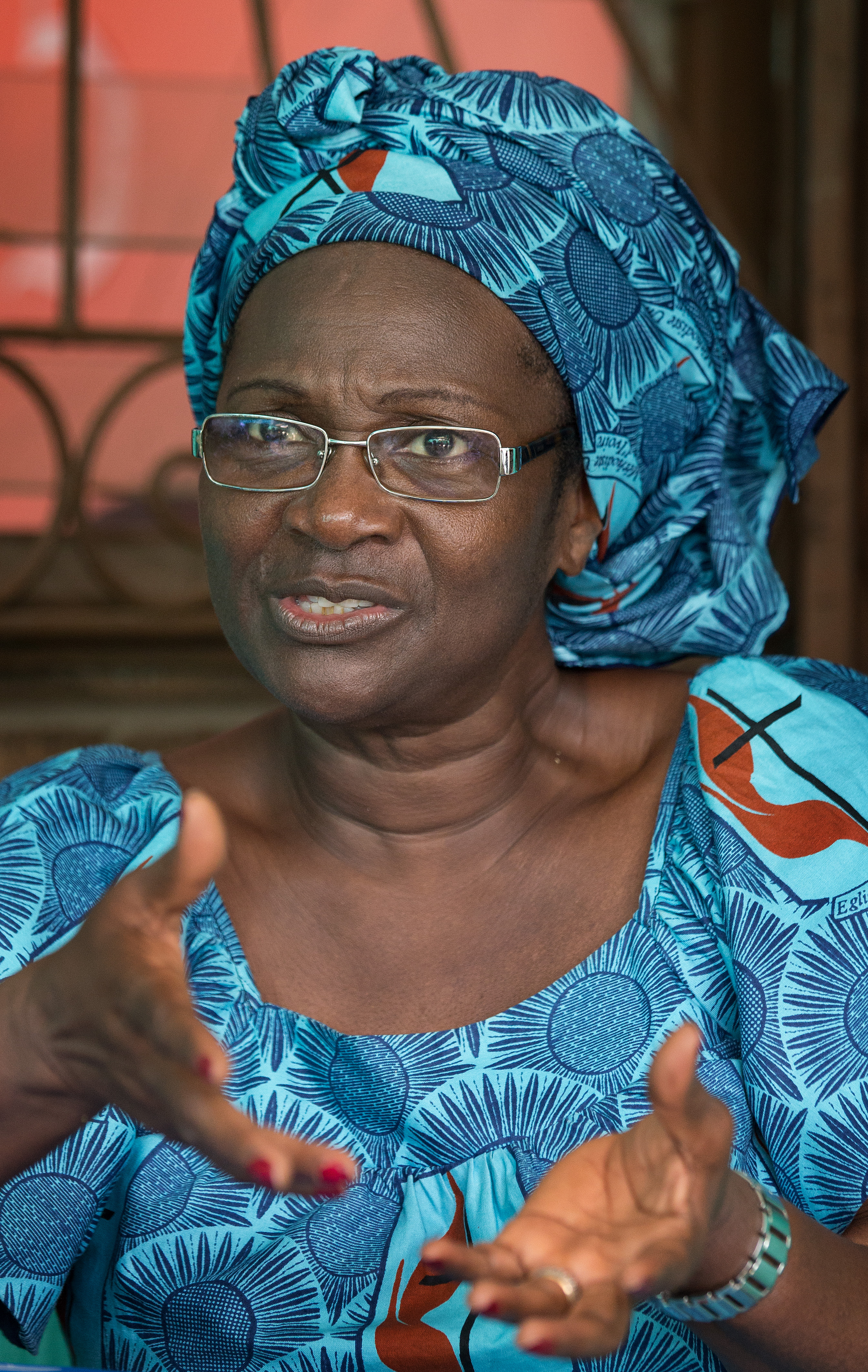Eugenie Sowan Erse N’Ghessan is bent over her loud, blue, industrial sewing machine in the back corner of a small room she shares with three other tailors.
She works from 8 a.m. to 9 p.m. and she is happy and feels blessed because she is earning a living for herself and her seven children.
Surrounded by multicolored fabric and thread, N’Ghessan also keeps a folder nearby. Inside is the paperwork that shows she completed training and owns the machine she is using. She is one of 48 women who received a micro-loan from the United Methodist Women in the Côte d’Ivoire Conference. That loan started her business.
N’Ghessan’s husband is retired. She wasn’t a tailor before she got the machine but she has learned to embroider, which brings her a lot of business making school and business uniforms.
A mannequin standing out front of her shop is dressed in an elegant full-length burgundy dress adorned with heavy satin stitches in teal thread. This is one example of N’Ghessan’s work, and it is the kind of work she enjoys most.
“I love to embroider because it is very beautiful,” she said.
N’Ghessan said it takes two days to make such a detailed dress and she earns 10,000 CFAs ($17 U.S.).
Testimonies to success
N’Ghessan’s success is exactly what Dorcas Adou was praying for when she approached the international UMW office in New York three years ago and asked for $20,000 U.S. to start a program to help women become independent business owners.

Dorcas Adou, president of UMW in Abidjan District.
“We could see what was around us, the misery, the poverty, so we discussed amongst ourselves, ‘What can we do to help these women?’” said Adou, president of United Methodist Women in the Abidjan District.
“My greatest pride is to see these women in their situations assuming responsibility for their family, their business. It puts these women into a position of dignity,” Adou said.
Christine Dobre, who received one of the loans, bought a freezer for her juice-making business.
Dobre lost her husband in 2012 and lives in cramped quarters with her large family of children and grandchildren.
She makes juice from ginger, pineapple, lemons and other fruit and freezes them in small plastic bags. She sells her product on the streets and at a nearby school. She heard about the micro-loan program at her local United Methodist church and requested a loan. She makes about $10 a week, selling her juice bags, five for $1.
Now she has income to help feed her family and send her children to school. “It changed my life,” she said.
Reine Akaffou sells palm oil and pancakes. Plastic water bottles filled with the golden oil sit in neat rows inside a rusty wheelbarrow near her outdoor kiosk. One of the things she most enjoys about being a part of the women’s program is the chance to meet with other businesswomen and share their experiences.
“I learned of the program through church,” she said. She is learning how to keep records and about accounting, and that, in turn, teaches her to make a profit.
Changing Côte d’Ivoire
Adou said children seeing their mothers work so hard and achieve success will be good for the future of Côte d’Ivoire.
“Women are the producers of life, if they can raise their children with values, to assume responsibility later in life, that already is the beginning of the change,” she said.
She laughed and pointed out, “We have no cooking books, but we are very good cooks because we see how our mothers cook.”
Gilbert is a multimedia news reporter for United Methodist News Service. Contact her at (615) 742-5470 or [email protected].
Like what you're reading? Support the ministry of UM News! Your support ensures the latest denominational news, dynamic stories and informative articles will continue to connect our global community. Make a tax-deductible donation at ResourceUMC.org/GiveUMCom.







